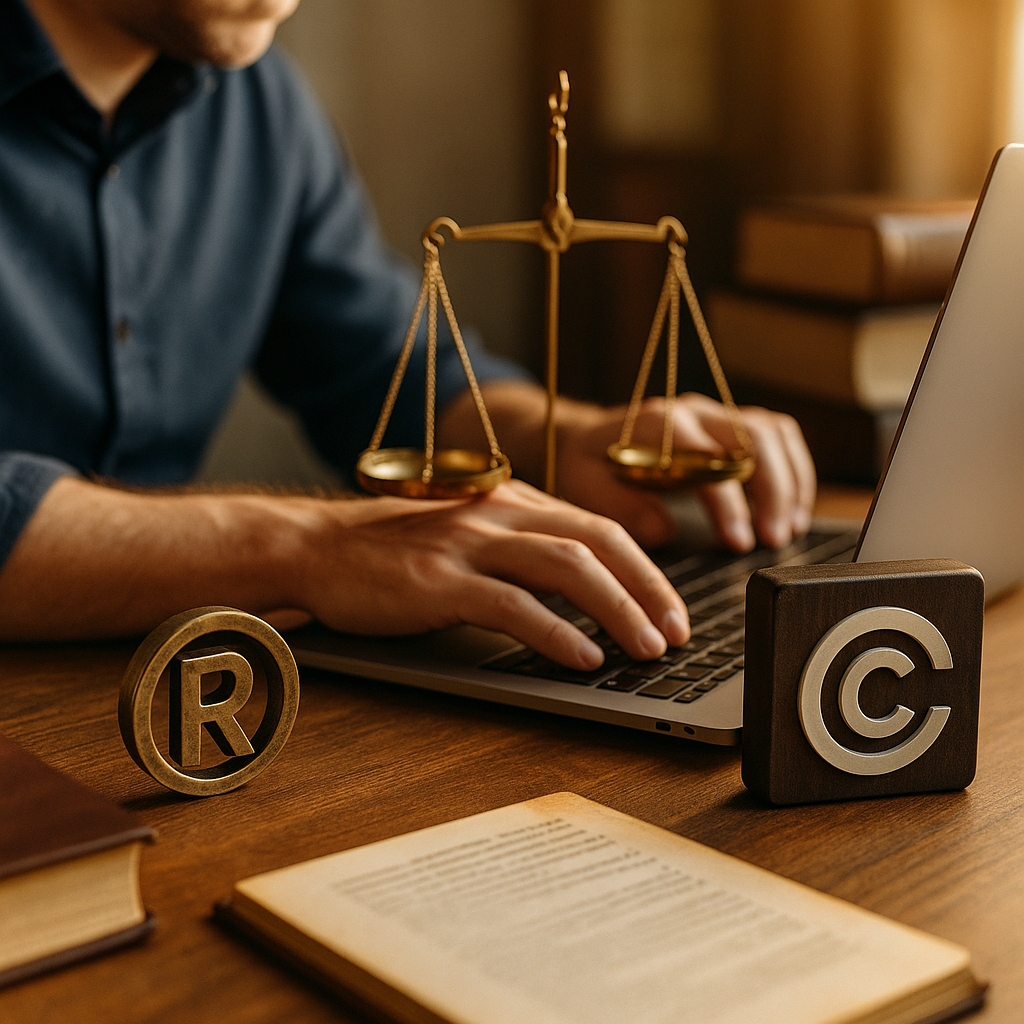Understanding trademark and copyright law is essential for digital marketers navigating the fast-evolving world of content creation and brand strategy. Protecting intellectual property and avoiding infringement can make or break your campaigns. This guide will help you master the rules of trademark and copyright law for digital marketers—and safeguard your projects in 2025 and beyond.
Trademark Law for Online Branding Success
Trademarks are valuable assets for businesses aiming to establish a unique online presence. They protect brand names, logos, slogans, and distinctive designs that set a company apart. For digital marketers, recognizing and respecting trademarks is non-negotiable. Using a protected mark without permission could result in legal disputes or damage to reputation.
Every time you develop a campaign or select a domain name, check for existing trademarks using official databases such as the United States Patent and Trademark Office (USPTO) or EUIPO for Europe. Proactive trademark searches help avoid accidental infringement and demonstrate due diligence. Additionally, strong trademarks increase consumer trust, organic visibility, and online conversions.
Copyright Law and Content Creation for Marketers
Copyright protects original works like images, articles, videos, infographics, coding, and audio shared or used in digital marketing. Marketers often source and reuse content online, but failing to secure rights or permission can bring harsh penalties.
- Always verify whether content is protected or license-free. Even social media posts are often covered by copyright law.
- Leverage reputable stock libraries and verify license terms before publishing or editing any third-party imagery or multimedia.
- When in doubt, create original materials or commission content from trusted professionals with clear contracts outlining usage rights.
Marketers should also protect their own creative assets by asserting copyright upon creation and considering registration for additional legal leverage if infringement occurs.
Legal Compliance: Avoiding Infringement in Campaigns
Infringement—whether intentional or inadvertent—may lead to lawsuits, costly settlements, and a loss of brand credibility. Digital marketers must implement policy and practice to ensure content compliance. Risk arises not just from outright copying, but from sharing, remixing, or deriving too closely from protected materials.
- Regularly audit all web, email, blog, and social assets for trademark and copyright compliance.
- Educate content teams on the rules of fair use, parody, and news reporting, but do not rely on “gray areas.”
- Be cautious with user-generated content; secure permissions and clarify terms in all influencer partnerships and contests.
Advanced digital tools such as plagiarism checkers and reverse image search can help identify possible infringements before they escalate. This proactive approach protects the marketer’s brand reputation and minimizes exposure to legal action.
International Trademark and Copyright Issues for Global Campaigns
Digital marketing campaigns frequently cross borders, so international trademark and copyright law becomes relevant. Laws can differ by jurisdiction, and what is legal in one country may violate rights elsewhere.
- When expanding into new regions, verify the local registration status of your own and others’ brands and creative assets.
- Familiarize your team with global agreements like the Madrid Protocol (for trademarks) and the Berne Convention (for copyright), which streamline international protections but have specific procedural requirements.
- Consult legal experts for region-specific guidance, especially when launching large-scale cross-border campaigns or partnering with international creators.
Strong, consistent intellectual property protections worldwide enhance marketing effectiveness and reduce the risk of cross-border disputes in 2025’s increasingly connected markets.
Best Practices for Protecting and Enforcing Digital IP Rights
Building and defending your digital IP portfolio should be a priority for any brand marketer. Here’s how digital marketers can maintain a robust intellectual property defense:
- Register key trademarks and copyrights. This provides evidence of ownership and stronger rights in case of infringement.
- Monitor usage across the web. Automated services can alert you to unlicensed use of your content or brand assets.
- Enforce your rights promptly. Send cease-and-desist letters or file takedown requests as soon as you spot unauthorized use, before reputational damage occurs.
- Train your teams. Consistent education ensures that everyone understands the importance and mechanics of trademark and copyright law, reducing the risk of inadvertent violations.
Having clear documentation and contracts with contributors, partners, and agencies also helps establish ownership and authorized usage of all creative content. When needed, legal counsel can further support your rights and guide you through enforcement or resolution procedures.
FAQs: Trademark and Copyright Law for Digital Marketers
- Q: Can I use images from Google in my marketing?
A: No, images found on Google are likely protected by copyright and require licensing or permission from the creator before use in your marketing materials. - Q: What’s the difference between copyright and trademark?
A: Copyright protects original creative works (e.g., articles, photos), while trademarks protect brand identifiers (e.g., logos, names) used to distinguish goods or services. - Q: How can I check if a phrase or logo is already trademarked?
A: Use trademark office databases like USPTO (for the U.S.) or WIPO’s Global Brand Database for international checks. Always search before launching new branding. - Q: What are the risks if I infringe copyright or trademark laws?
A: Risks include cease-and-desist orders, financial penalties, the need to remove content, and potentially irreparable reputational damage for your brand or client.
In summary, a thorough understanding of trademark and copyright law enables digital marketers to build trusting brands, minimize legal risk, and maximize the reach of their campaigns. Prioritize proactive compliance and empower your team for sustained success in the digital arena of 2025.
